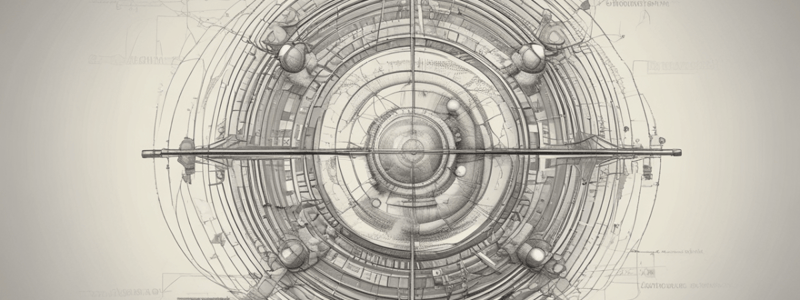Podcast
Questions and Answers
What is the primary purpose of conducting experiments in scientific research?
What is the primary purpose of conducting experiments in scientific research?
- To test and verify hypotheses (correct)
- To establish a hypothesis
- To gather data for publication
- To make observations in a natural habitat
What distinguishes an experiment from a non-experimental scientific study?
What distinguishes an experiment from a non-experimental scientific study?
- The intervention of the scientist in the system (correct)
- The use of peer-reviewed journals
- The collection of data in a natural habitat
- The formulation of a hypothesis
What is the role of observations in scientific inquiry?
What is the role of observations in scientific inquiry?
- Only to test hypotheses
- To communicate results to other scientists
- Only to make experiments more effective
- To gather data and develop hypotheses (correct)
What is the purpose of peer-reviewed scientific journals?
What is the purpose of peer-reviewed scientific journals?
What is an example of a non-experimental scientific study?
What is an example of a non-experimental scientific study?
What is a key characteristic of scientific inquiry?
What is a key characteristic of scientific inquiry?
Study Notes
Scientific Method
- Science involves making observations and developing hypotheses to explain phenomena.
- Hypotheses are tested through experiments and/or further observations to gather data.
- Data is carefully interpreted to validate or refute hypotheses.
Scientific Experiment
- A scientific experiment is a carefully organized procedure that intervenes in a system to change something.
- The scientist observes the result of the change to draw conclusions.
Types of Scientific Inquiry
- Experimental research: involves making changes to a system and observing the effects.
- Non-experimental research: involves careful and verifiable observation of the natural world without intervening.
Examples of Scientific Research
- Observational study: a scientist studying ladybugs' mating behaviors in their natural habitats.
- Experimental study: treating ladybugs with a hormone to trigger mating and observing the effects.
Studying That Suits You
Use AI to generate personalized quizzes and flashcards to suit your learning preferences.
Description
Learn about the scientific method, from making observations and developing hypotheses to testing and communicating results. Discover the importance of experimentation and peer-reviewed journals in scientific inquiry.




